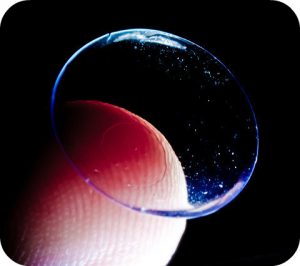 In recent years, a number of startups have quickly grown into powerhouse operations by selling certain products directly to customers. From the eyewear seller Warby Parker to the razor maker Harry’s, these companies have disrupted traditional industries by cutting out unnecessary middlemen from their supply chains. They’ve also inspired startups like Hubble, a subscription-based service that sells contact lenses. For just $1 per day or $30 per month, customers receive a supply of Acuvue Moist daily disposable contacts, one of the industry’s most popular brands.
In recent years, a number of startups have quickly grown into powerhouse operations by selling certain products directly to customers. From the eyewear seller Warby Parker to the razor maker Harry’s, these companies have disrupted traditional industries by cutting out unnecessary middlemen from their supply chains. They’ve also inspired startups like Hubble, a subscription-based service that sells contact lenses. For just $1 per day or $30 per month, customers receive a supply of Acuvue Moist daily disposable contacts, one of the industry’s most popular brands.
But while Hubble’s founders modeled their company on Harry’s, contact lenses are a much trickier product to deal with than razors. Classified as a “medical device” by the FDA, contacts are also subject to several FTC rules regarding how they are sold. For instance, sellers aren’t required to obtain a copy of a prescription, but they do need to verify it with the customer’s doctor. Although Hubble claims to do just that, critics say the company isn’t nearly as diligent as it lets on. In one case, a skeptical optometrist named Justin Bazan placed an order with a fake prescription that listed “Warby Parker” as his doctor. Hubble soon verified the nonexistent optometrist and confirmed the order, convincing Bazan to stop fitting the company’s contacts for his patients. “I don’t feel that it provides the best health to my patients’ eyeballs,” said Bazan.
The problem appears to stem from a feature on Hubble’s website that allows customers to select their doctor out of a list of options. If someone can’t find their optometrist listed, Hubble says to provide their name and the company will find them. According to critics, though, this feature doesn’t work nearly well as intended. Even when Hubble manages to reach the correct office, some doctors can’t decipher the messages left by the company’s automated voice system. In fact, earlier this year the American Optometric Association complained in a letter to the FTC that Hubble was not “appropriately verifying contact lens orders” and had sold “contact lenses that have not been prescribed by doctors as is required.” Despite these flaws, however, Hubble has collected nearly $30 million from investors since its 2016 founding and is currently valued at more than $200 million.
Questions:
- From Uber to Theranos, a number of startups in recent years have received criticism for ignoring regulations in order to focus on growth. Do you think Hubble is doing the same thing here? Why or why not?
- How do you think the American Optometric Association’s complaints about Hubble will affect the company’s growth?
Source: Alison Griswold, “Contact Lens Startup Hubble Sold Lenses With a Fake Prescription From a Made-Up Doctor,” Quartz, December 14, 2017. Photo by n4i.
